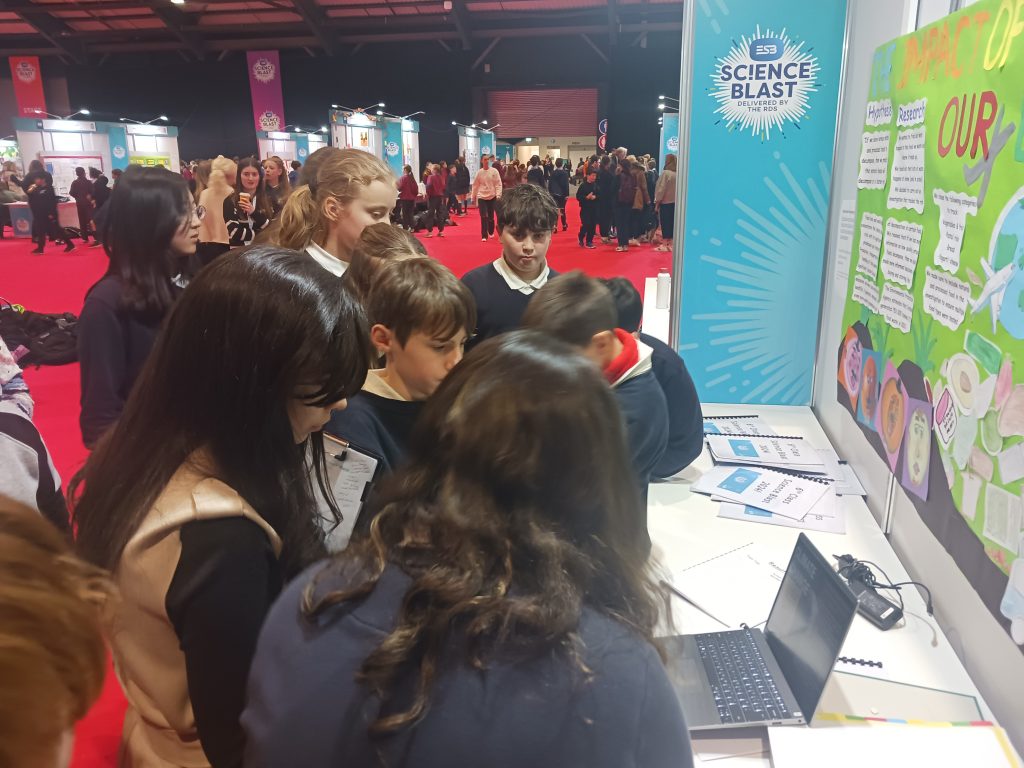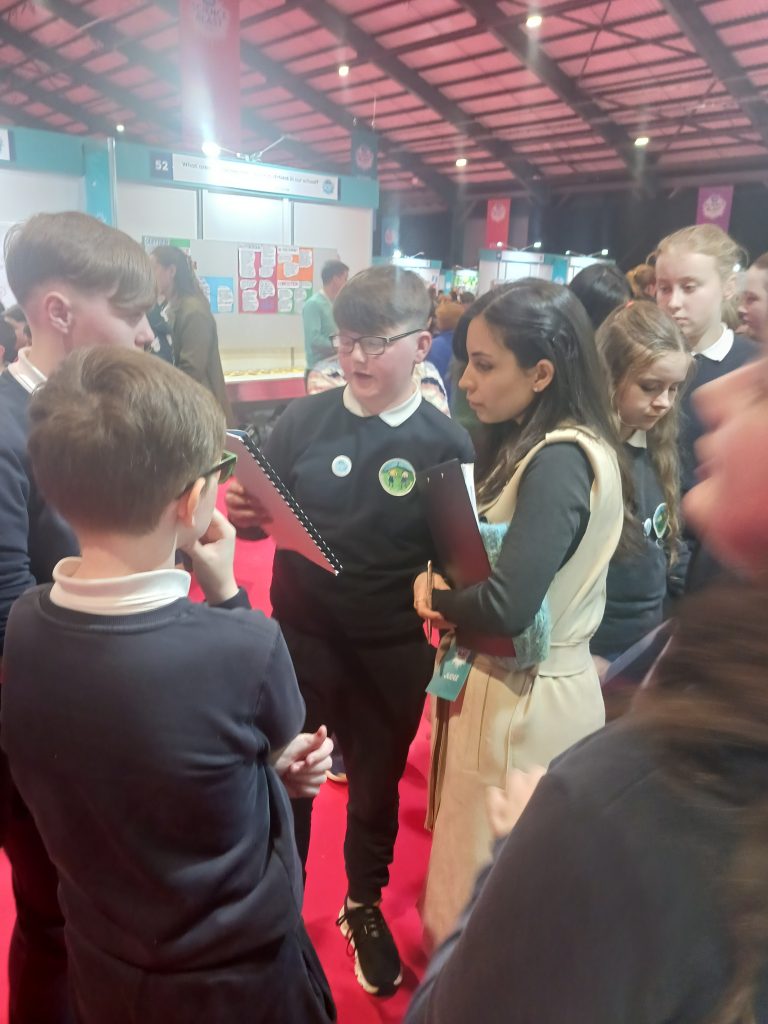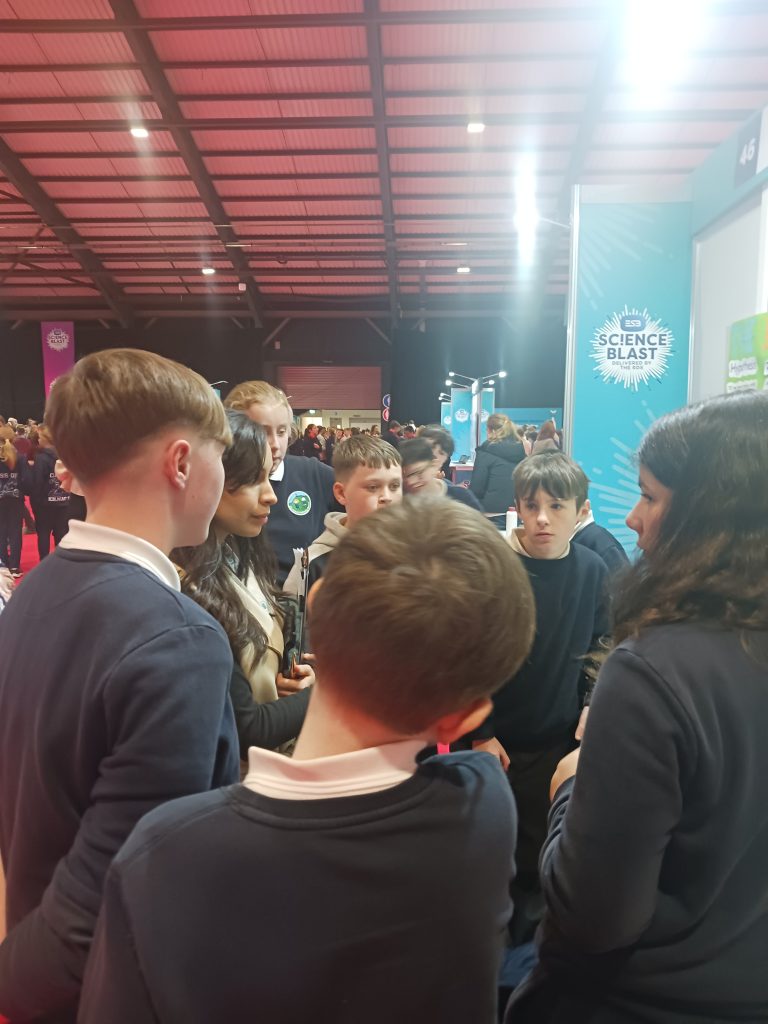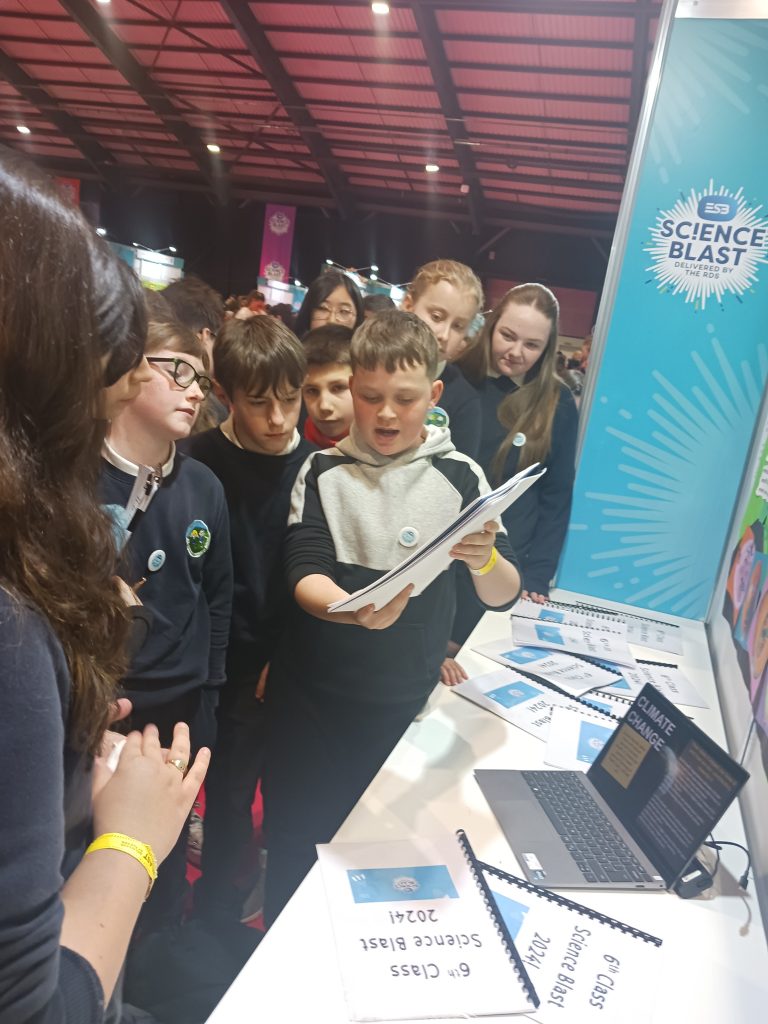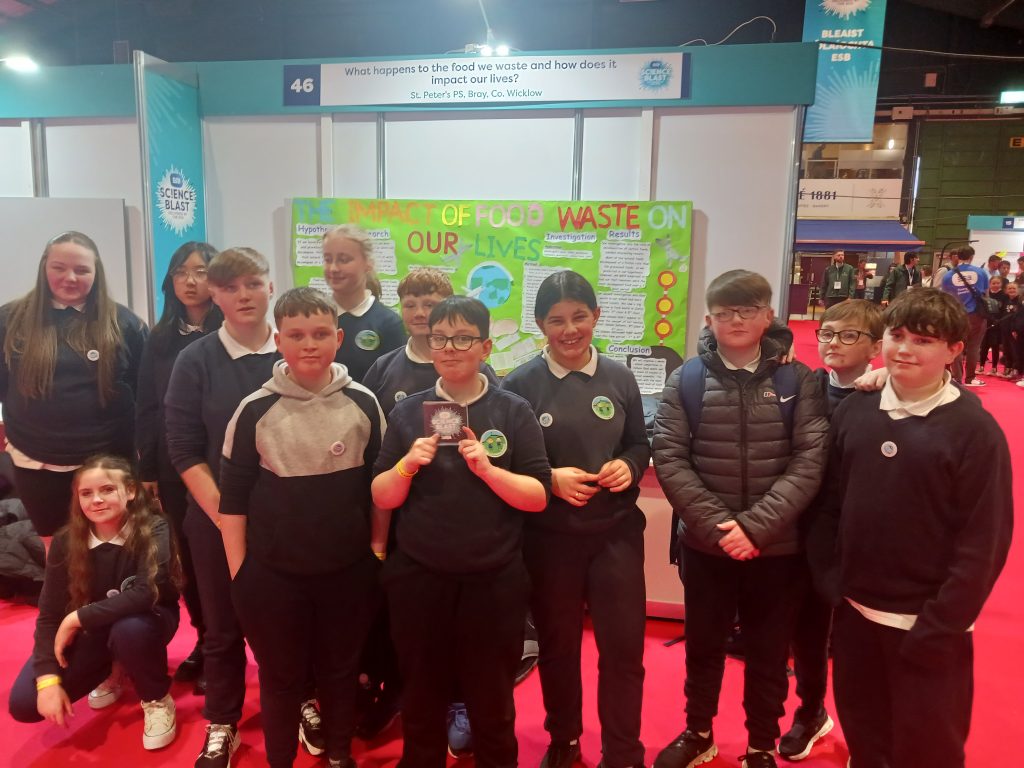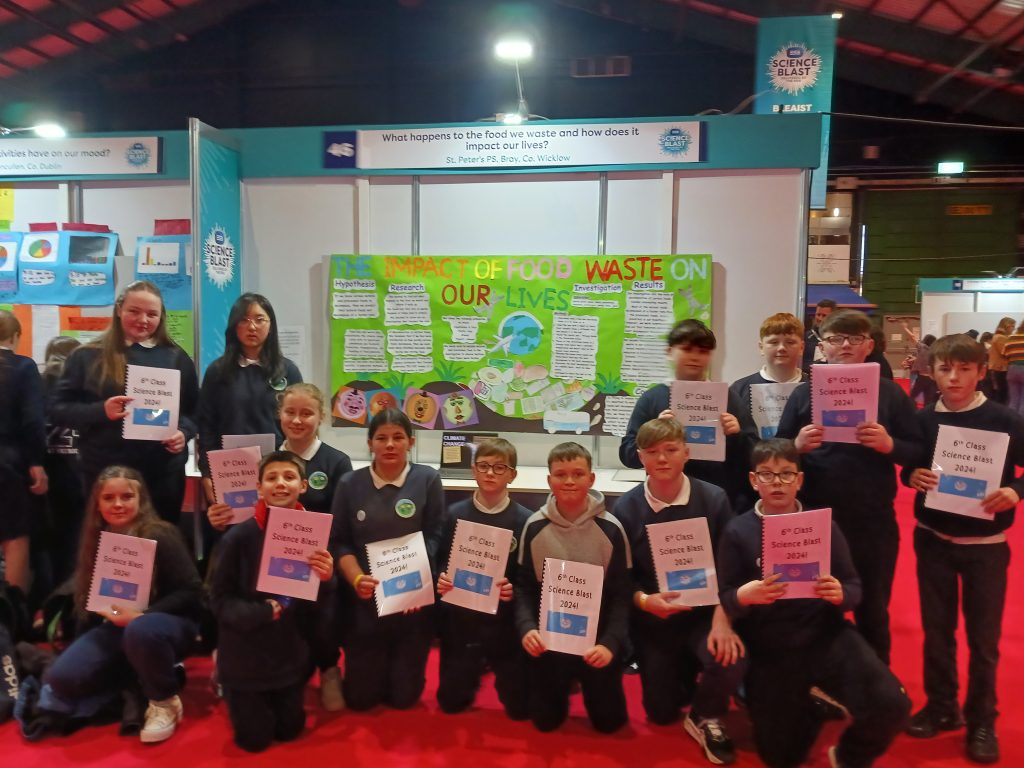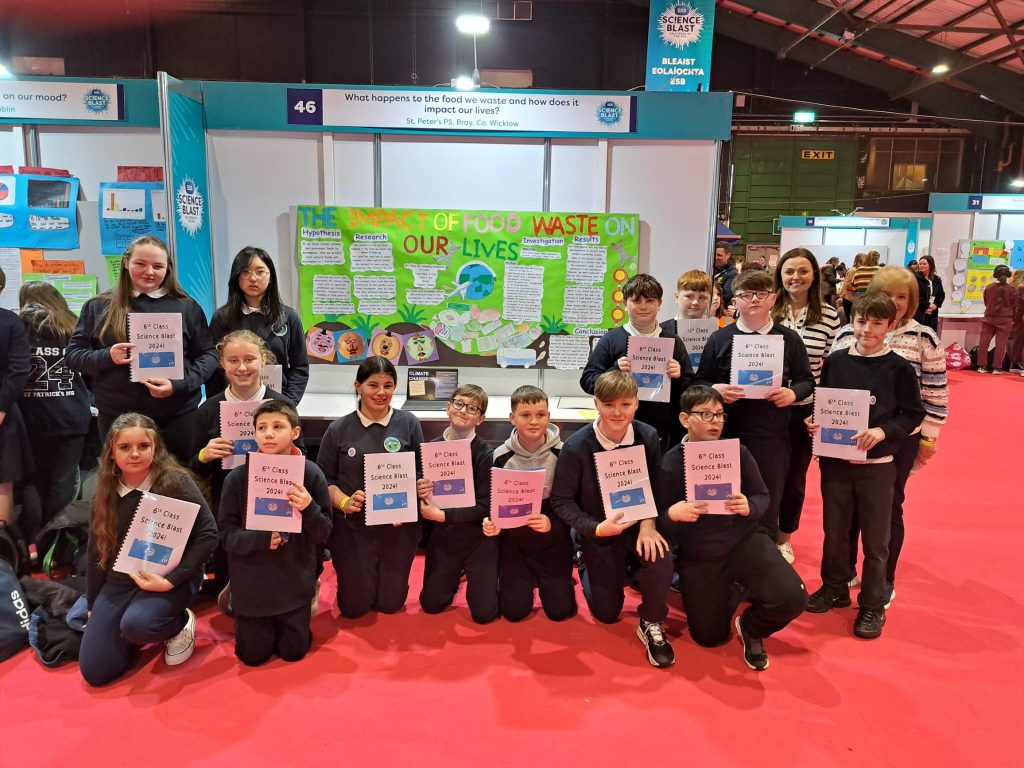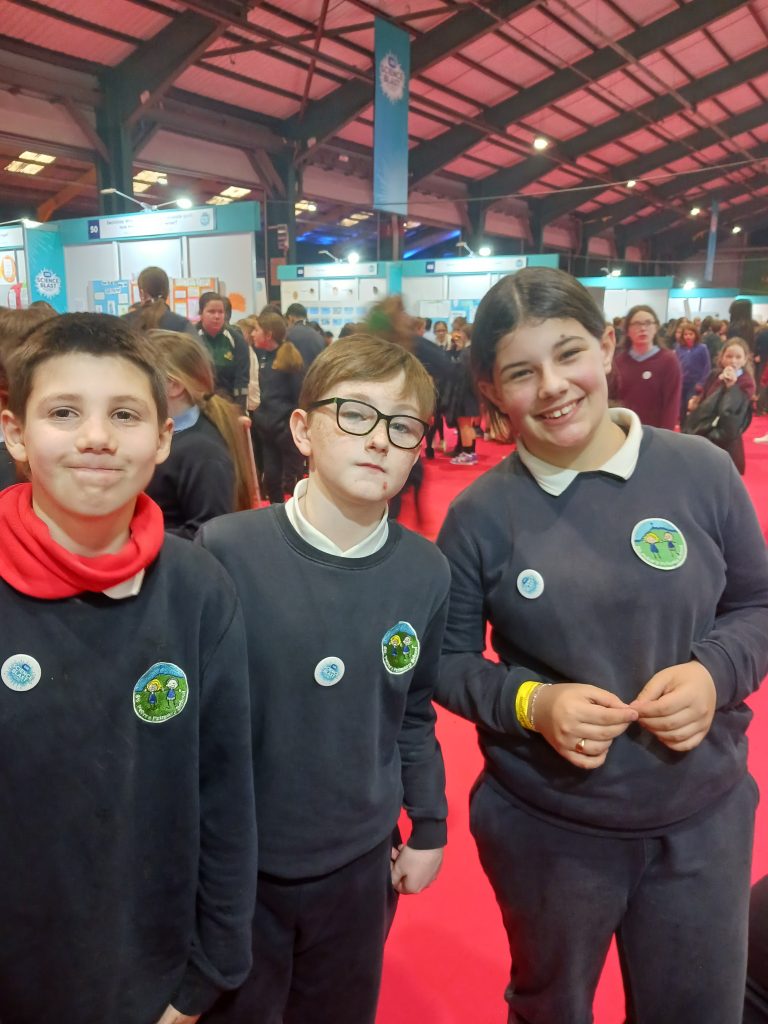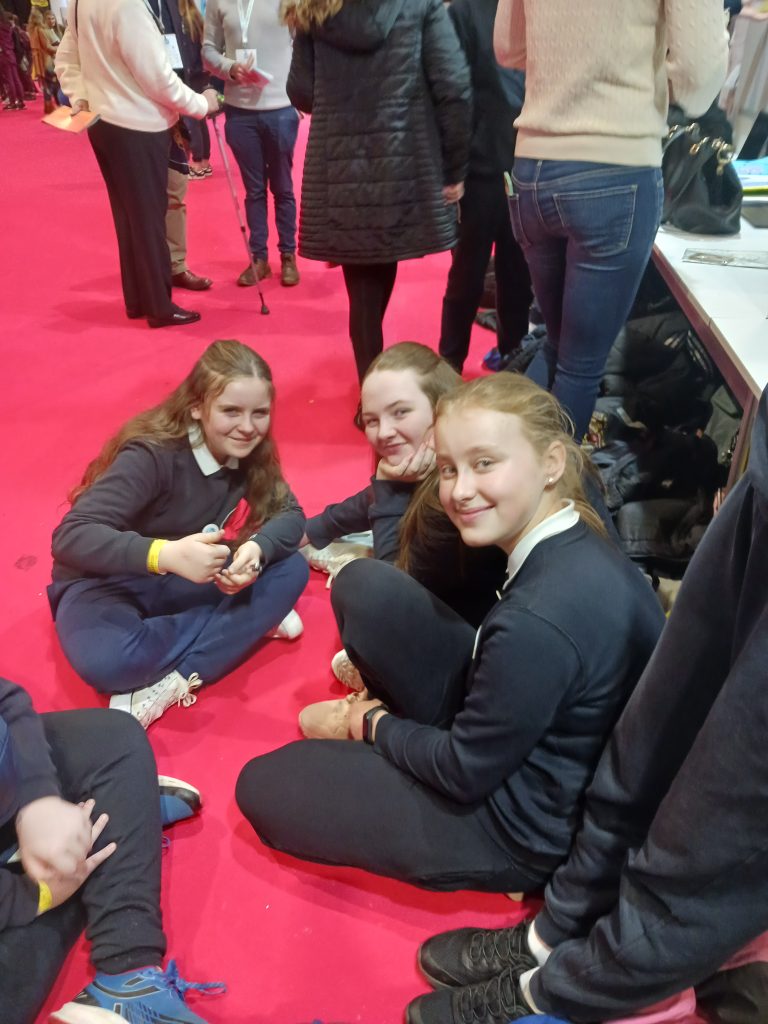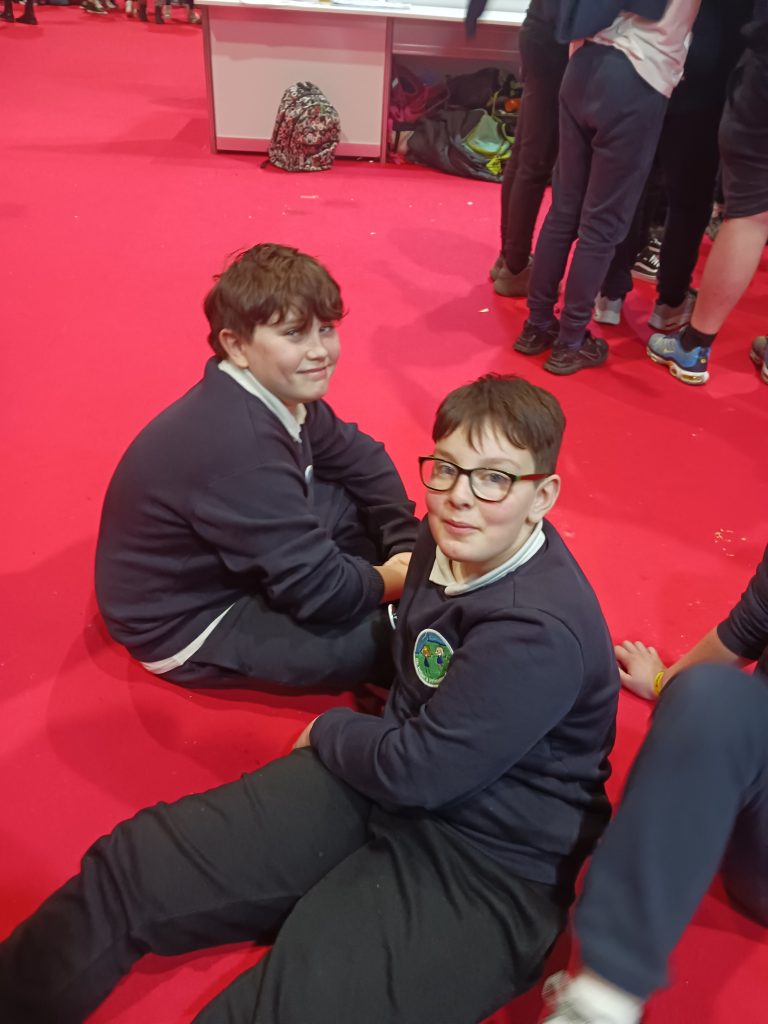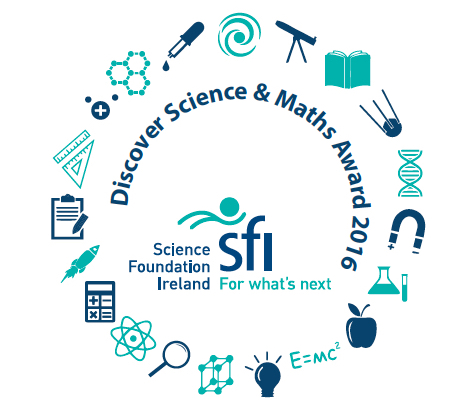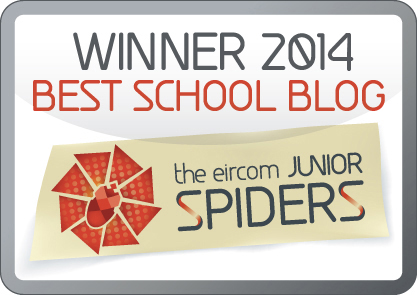This year 6th class took part in the ESB Science Blast and asked the question:
‘What happens to the food we waste and how does it impact our lives’.

Science encourages us to question the world around us and how we as humans, interact with the world. We chose our project title because we identified food waste happening in our school community and knew it was an issue in our homes too.
We wanted to find out what happens to the food we waste and where it ends up. We know that recycling/ compost bins are encouraged but do people and communities use them correctly or is there any way to reduce the amount of waste that eventually ends up in them?
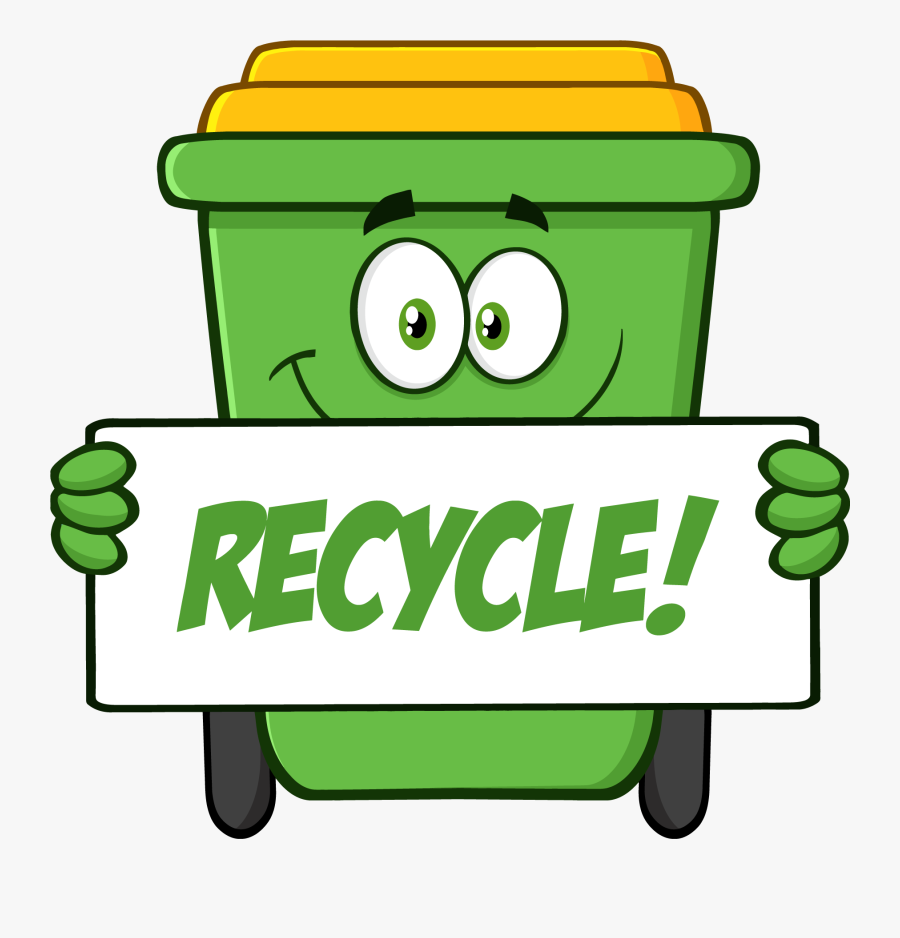
We decided to carry out an experiment that tracked the rate of decomposition of certain foods. We reasoned that if we had more information on how quickly certain foods decompose, then we could make more informed decisions when buying and storing food.
We chose the following categories to track:
- Vegetables & fruit
- Pasta/ rice
- Bread
- Yogurt/ cheese
We made sure to include natural and processed food in the investigation to ensure multiple food types were tested.
Take a look at some of our predictions:
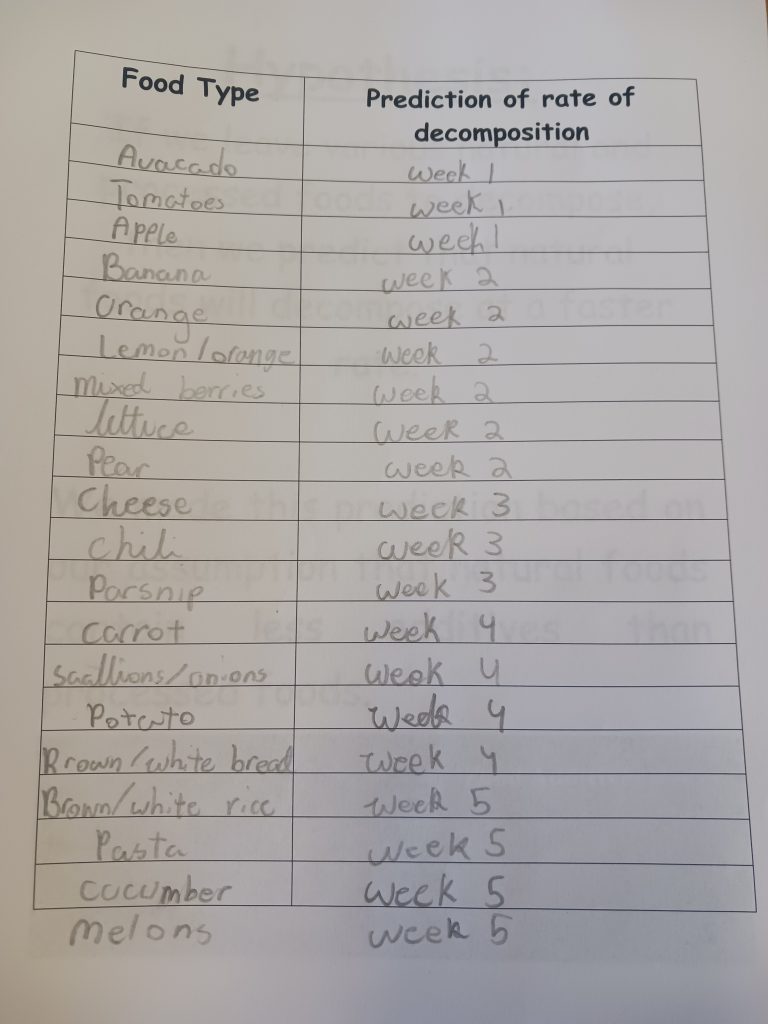
Hypothesis:
‘If we leave various natural and processed foods to decompose, then we predict that natural foods will decompose at a faster rate.’
We made this prediction based on our assumption that natural foods contain less additives than processed foods.
Check out our results:
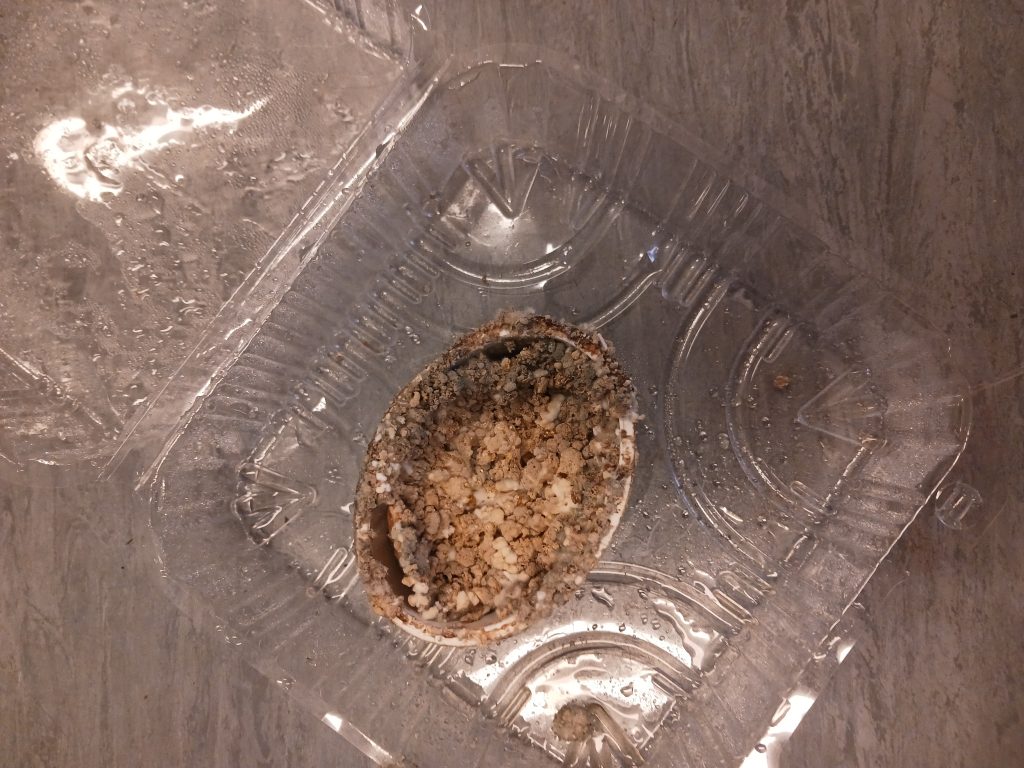
Yogurt mould. 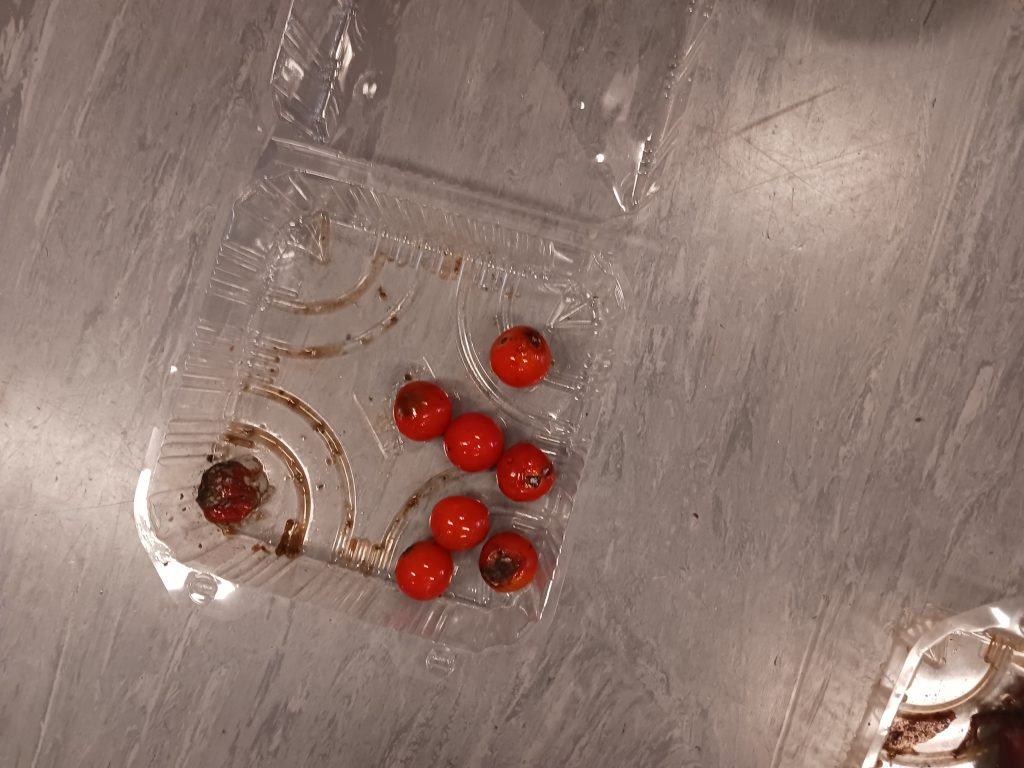
Tomatoes surprised us! 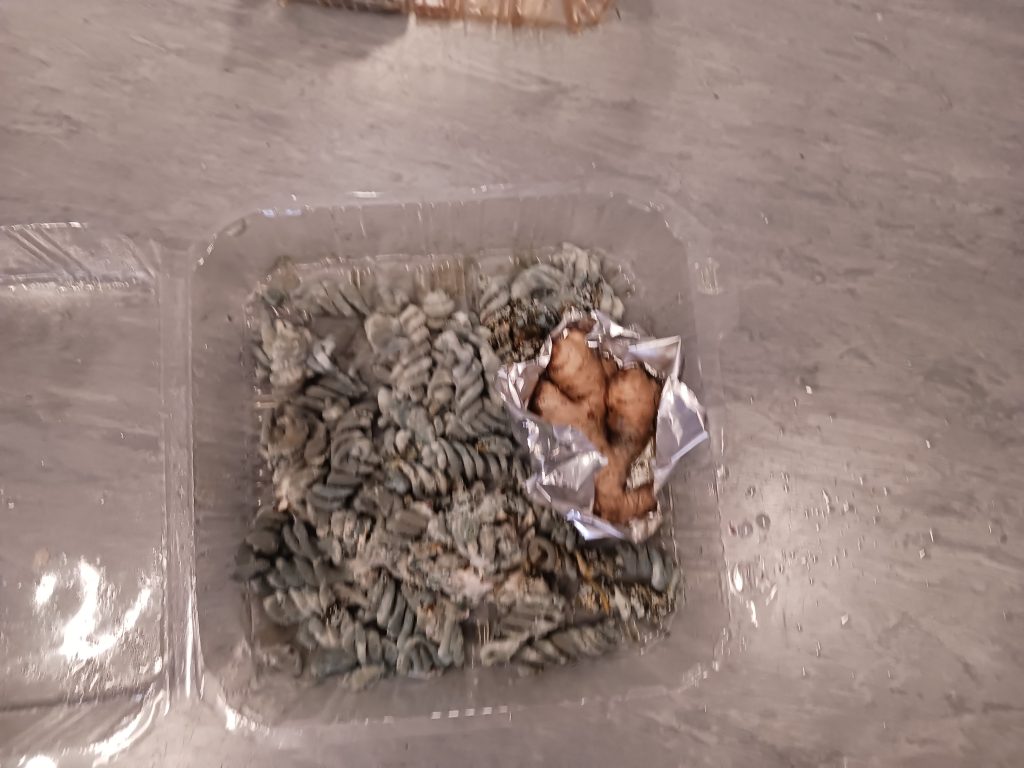
Pasta and ginger decomposing. 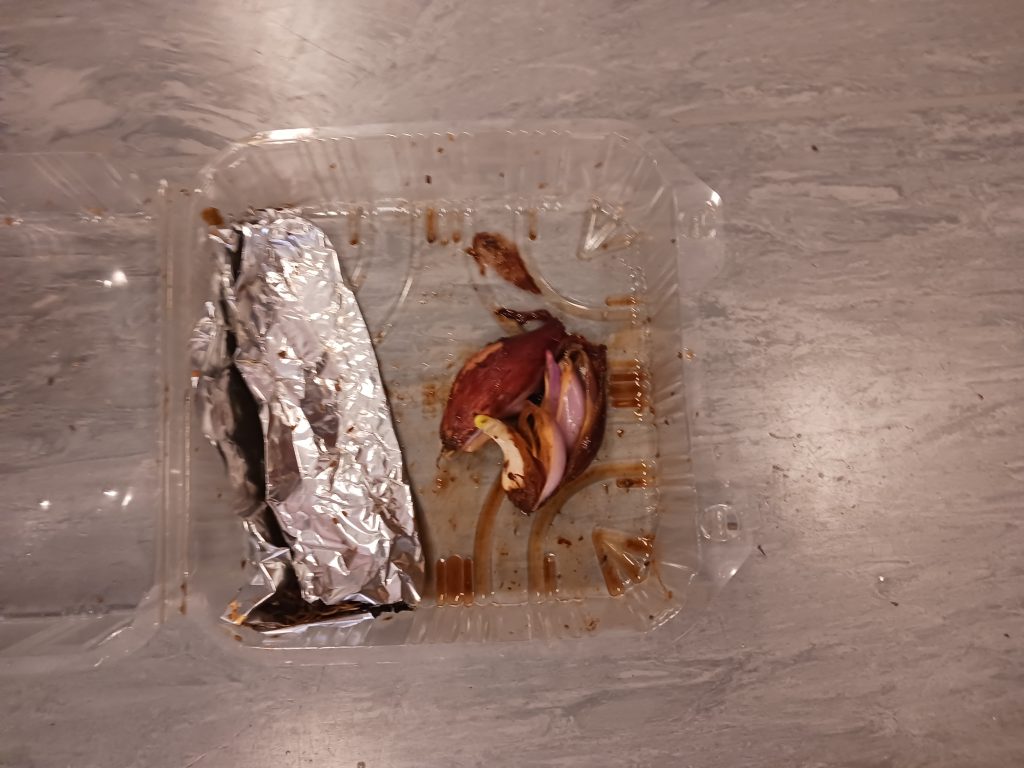
Onion – liquid and mould.
Where does our first waste go?
Food waste is a global problem that has environmental, social and economic consequences.
More than one quarter of the food produced globally is wasted. It is a significant contributor to climate change, as food loss and waste contribute to 8-10% of greenhouse gas emissions.
The Irish Government has committed to reduce food waste by 50% by 2030, which is in line with UN Sustainable Development Goals. The EU will also set targets to reduce food waste.
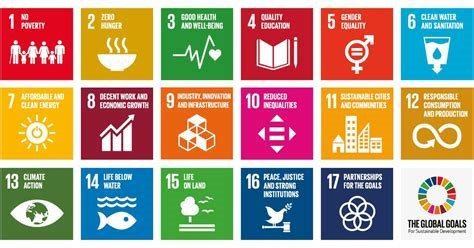
Food loss and waste also exacerbates the climate change crisis with its significant greenhouse gas (GHG) footprint. Production, transportation, and handling of food generate significant Carbon Dioxide (CO2) emissions and when food ends up in landfills, it generates methane, an even more potent greenhouse gas.
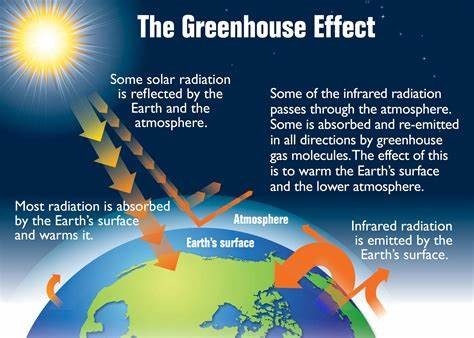
‘Reducing food waste in our school and community’
As part of our investigation into how food waste impacts our lives, we decided it would be useful if we tracked the hot lunches that are wasted in our own school.
We are lucky to receive hot lunches every day and can order from a range of options, including chicken curry, shepherd’s pie and pasta bake.
We tracked food waste in all the classes over a number of weeks from November ’23 to January ’24.
Our results were as follows:
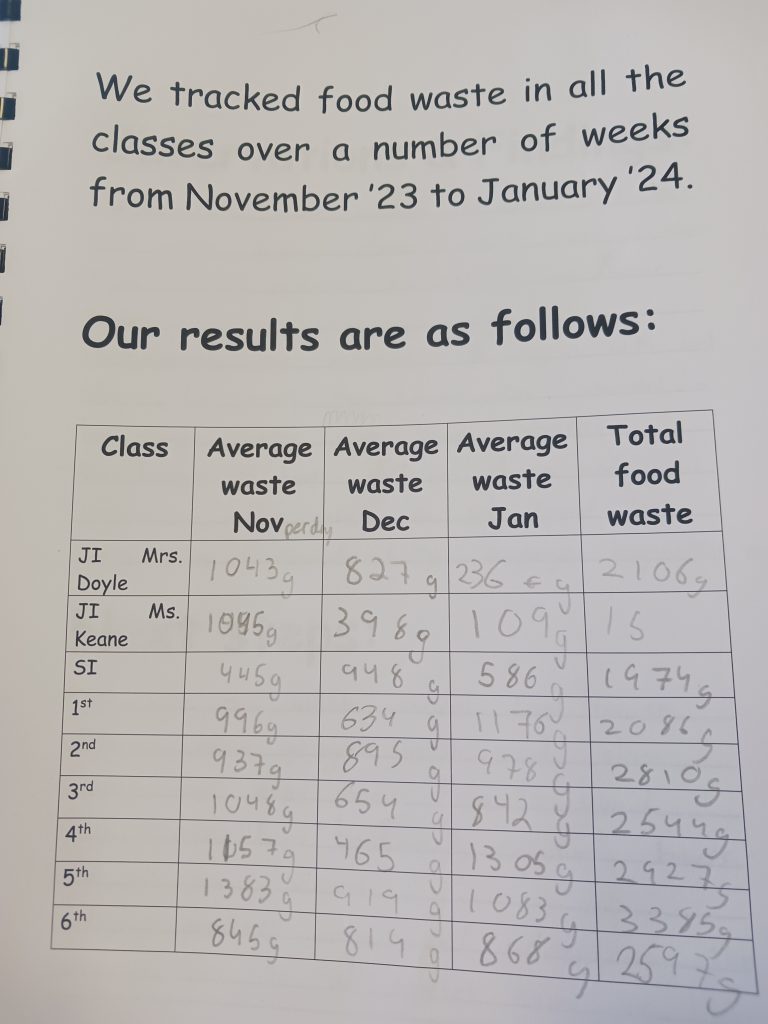
We have lots of work still to do to reduce food waste in our school.
Check out our presentation in the RDS. We worked hard to prepare our Science Blast booklets in anticipation of answering questions from our judge.
We were delighted to receive such positive feedback and comments from the judge!
Science Blast in the RDS was an amazing day and we got to meet with other students, listen to scientists giving talks and try out some cool Science experiments 😁

